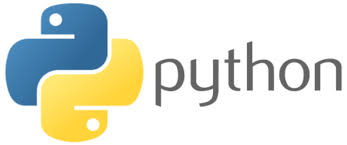CS 100

Scientific Computing
Activity 19 - Practice
Create python file practice.py and save to cs100/ch4. Copy this example code into it to follow along during class. Make sure you understand what each line is doing, and stop to ask questions if uncertain. As we walk through it together, write in comments what each function does.
# ----------- STRINGS -------------------
myString = "Hello CS 100 Students"
otherString = myString + ", how are you??"
print(otherString)
print( len(myString) )
print(myString[0])
print(myString[5])
smallString = "yep"
for i in range( len(smallString) ):
print( "index is: ", i, " -- item is: ", smallString[i] )
for item in smallString:
print( "item is: ", item )
numberString = "0123456789"
print( numberString[0:5] )
print( numberString[3:9] )
print( numberString[:4] )
print( numberString[5:] )
print( numberString[5:9] )
name = "heather"
print( "h" in name )
print( "z" in name )
print( "the" in name )
print( "z" * 50)
myString = "Hi CS 100!"
print( myString.center(50) )
print( myString.ljust(50) )
print( myString.rjust(50) )
words = "hello check check testing testing check check"
print( "number of e's: ", words.count("e") )
print( "number of 'check's: ", words.count("check") )
print( words.upper() )
print( words )
print( words.find("e") )
print( words.find("check") )
print( words.replace("e", "z") )
print( words )
print( ord('a') )
print( ord('b') )
print( chr(97) )
# --------- LIST ---------------
myList = ['a', 'b', 'c', 'd']
print( myList + ['e', 'f', 'g', 'h'] )
print( myList*3 )
numbers = list(range(10))
print(numbers)
words = ["hello", "my", "name", "is", "heather"]
print( words[0] )
print( words[2] )
for index in range( len(words) ):
print("index: ", index, " -- item: ", words[index] )
for item in words:
print(item)
print( "name" in words )
print( "hi" in words )
print( words[1:3] )
print( words[2:] )
print( words[:2] )
words[0] = "yo"
print(words)
words.append("!!!")
words.append("HI")
words.append("!!!")
words.append("!!!")
print(words)
words.pop()
print(words)
words.pop(0)
print(words)
if "name" in words:
print("index: ", words.index("name"))
else:
print("name is not in words")
print( "number of '!!!':", words.count("!!!") )
print( "number of 'HI':", words.count("HI") )
words.remove("my")
print(words)
myString = "hydrogen helium boron"
print( myString.split('o') )
print( myString.split(' ') )
myList = [6, 8, 2, 1, 4, 9, 10, 3]
myList.reverse()
print(myList)
myList.sort()
print(myList)
How to submit
Submit practice.py, complete with your comments, to Moodle.
So, now what?
- Work on your HW6. Got questions? Ask!
- Finish and submit your team project proposal.
- Read Ch 4.4 - 4.5 and take reading quiz Q13
If you did all that already…
Awesome! Here’s some other fun things you can do:
- Write a python function
isPalindrome(myString)to returnTrueorFalsebased on whether myString is a palindrome. A palindrome is a string such as"racecar"which is the same forwards as it is backwards. For example:print(isPalindrome("racecar")) # prints True print(isPalindrome("madam")) # prints True print(isPalindrome("yourname")) # prints False - Test your
isPalindromefunction also handles spaces. You may need to update your implementation to do so. For exampleprint(isPalindrome("a man a plan a canal panama")) # prints True print(isPalindrome("never odd or even")) # prints True print(isPalindrome("your name")) # prints False